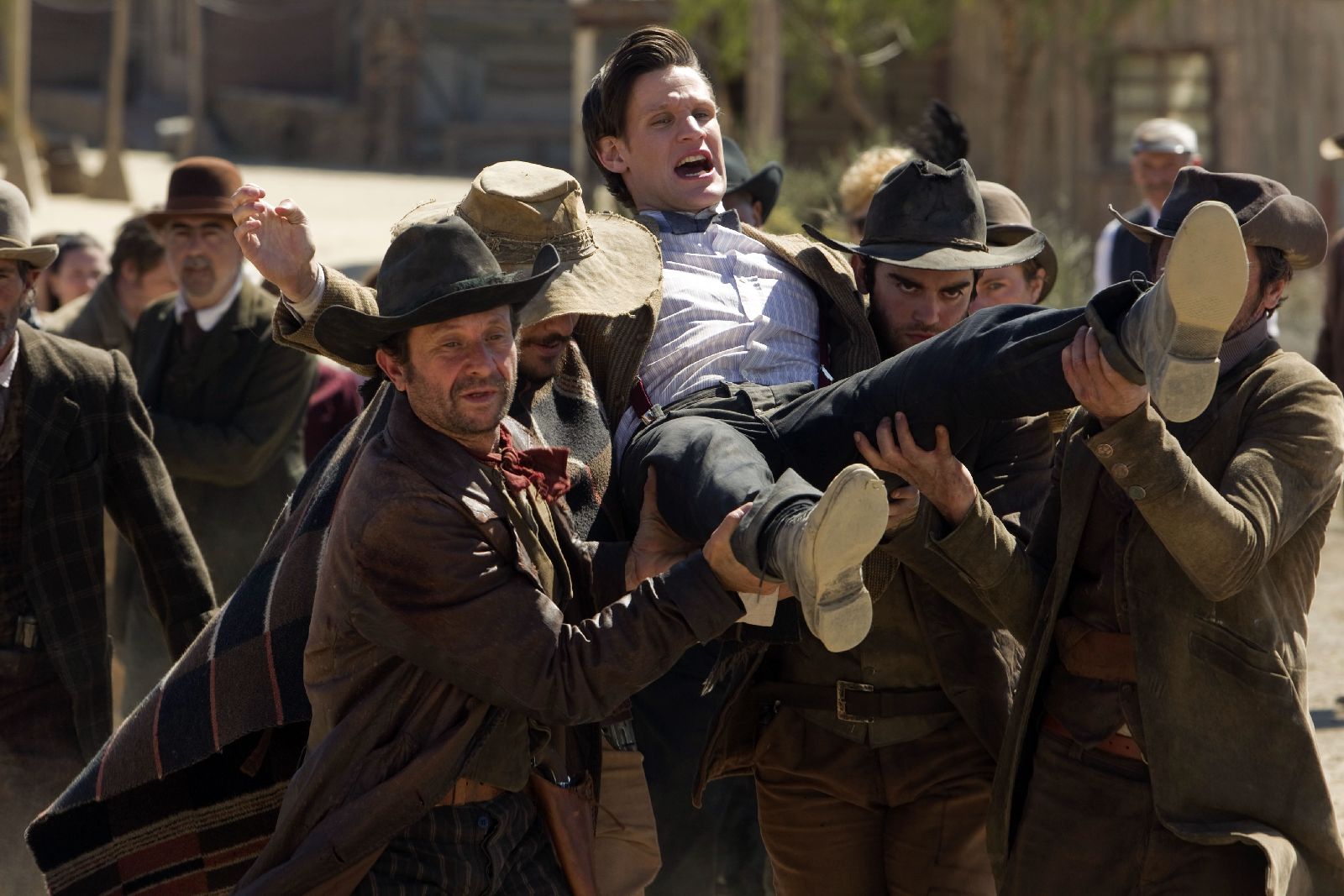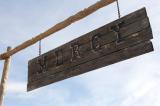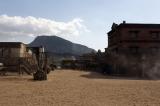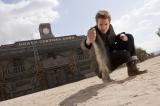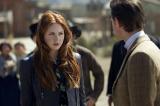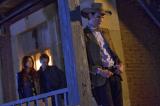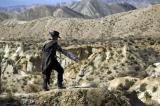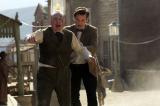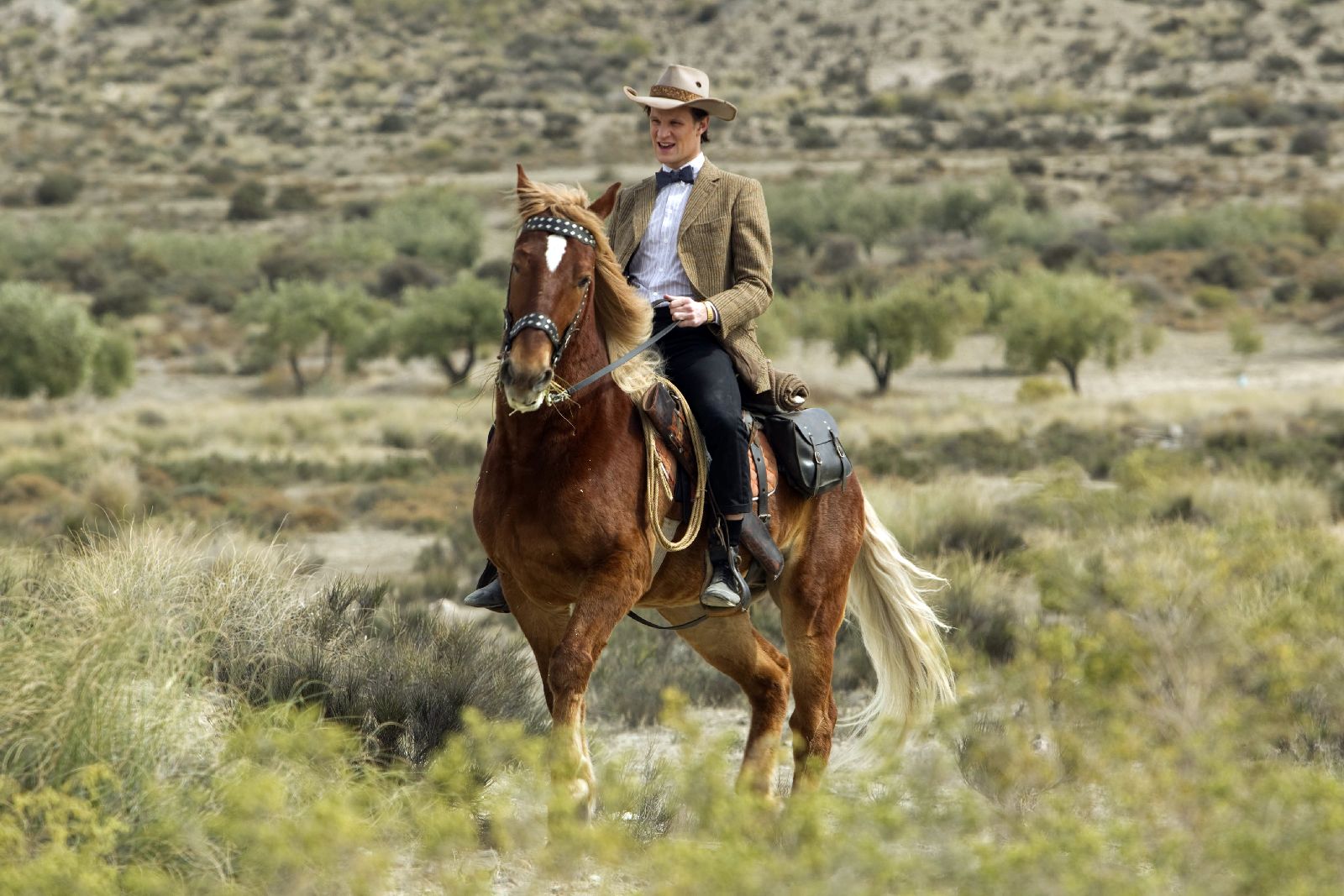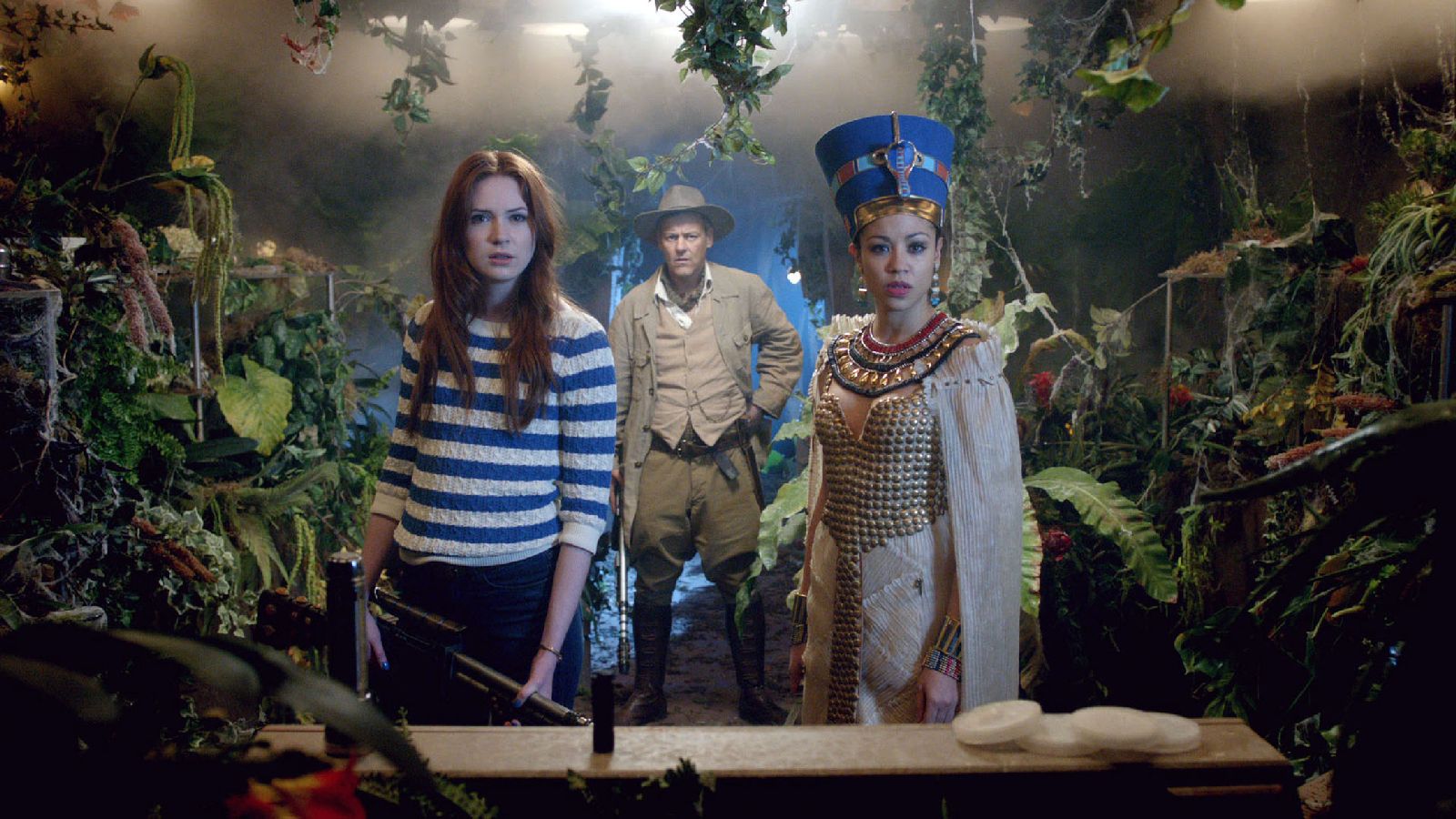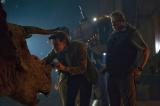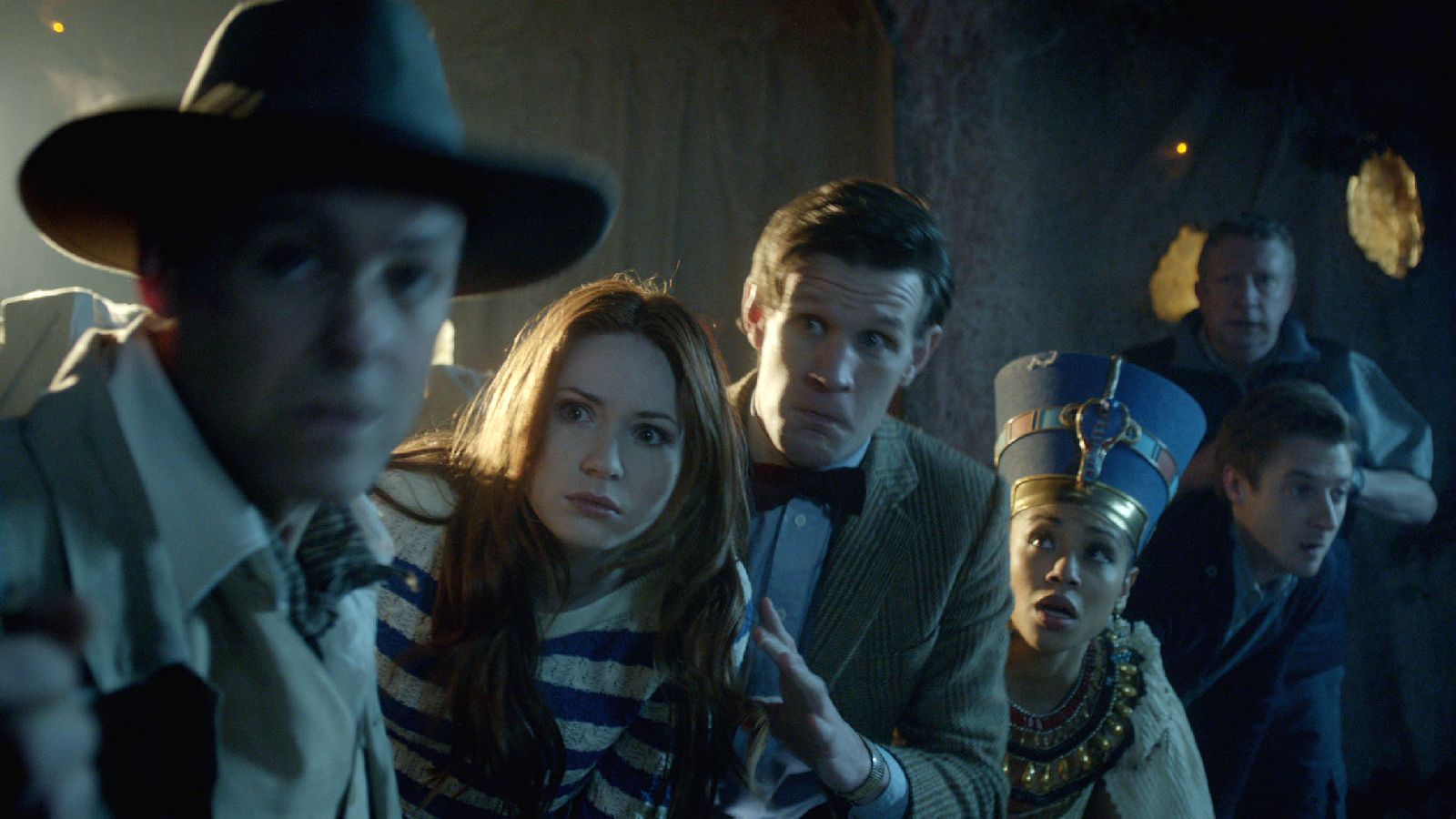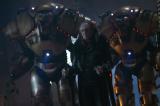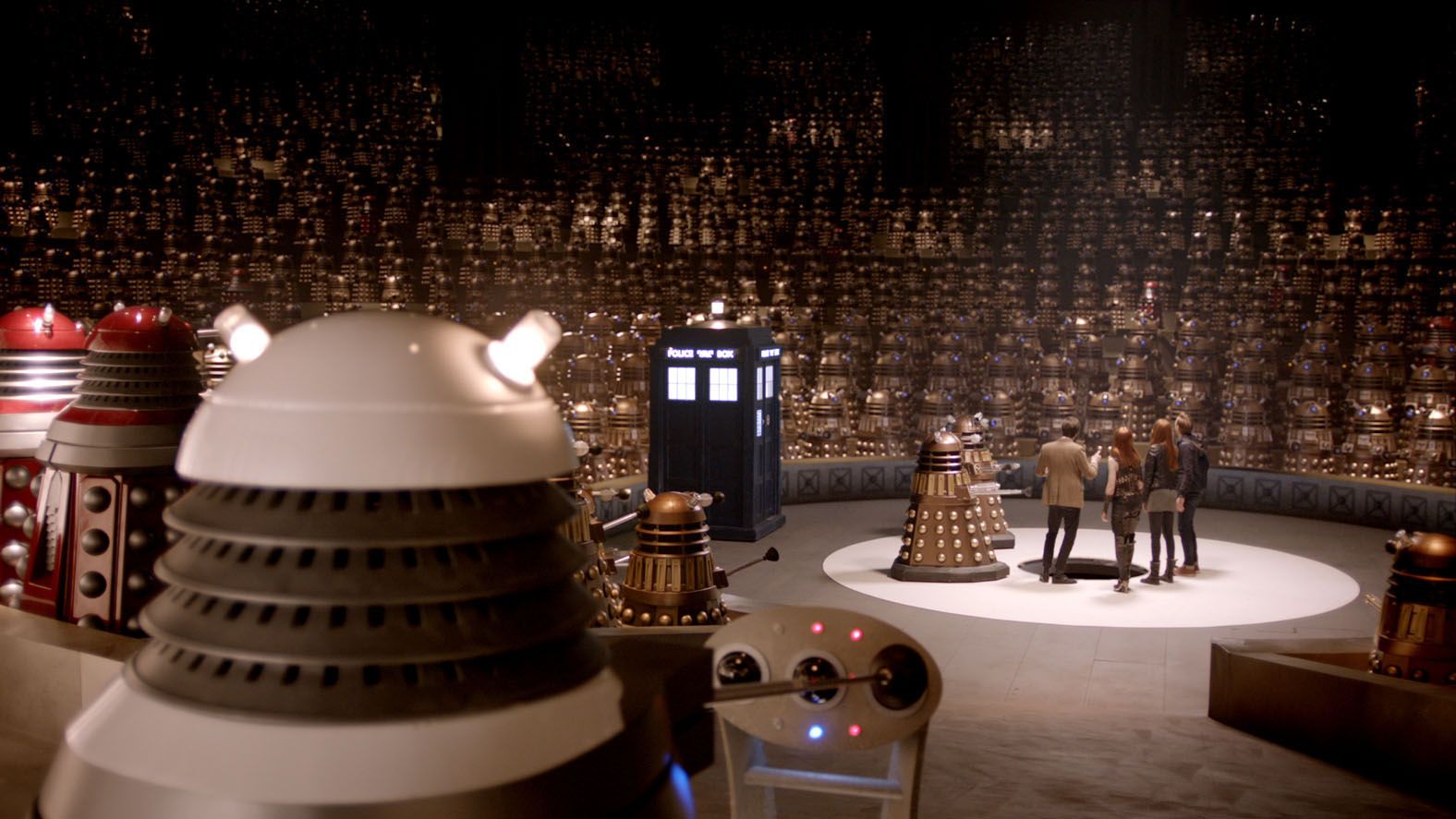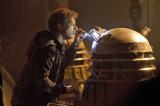Doctor Who: The Power of Three
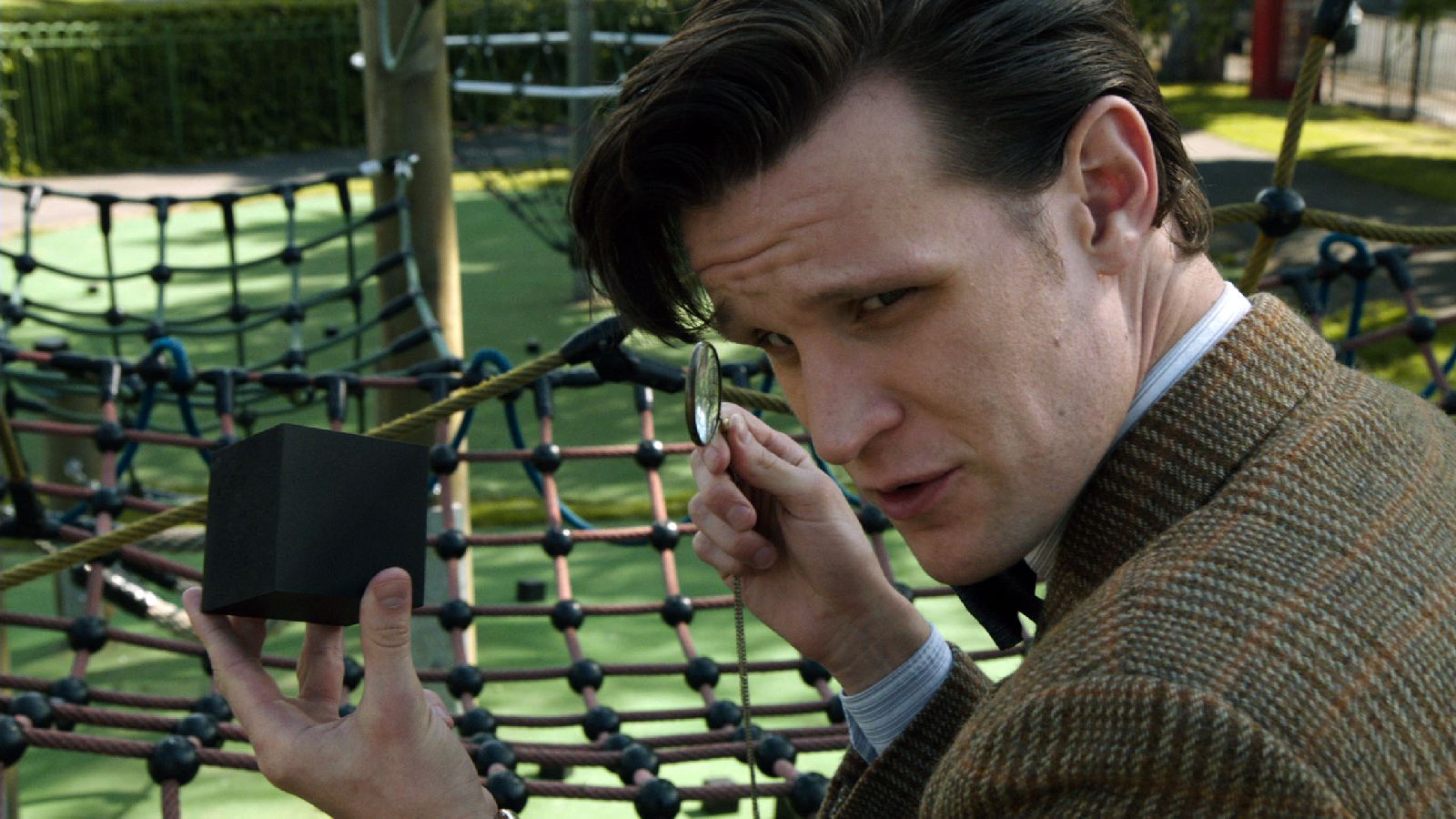
Doctor Who - The Power of Three
Written by Chris Chibnall
Directed by Douglas Mackinnon
Broadcast on BBC One - 22 September 2012
“That’s new!” And as a slogan for series seven, surely those words are appropriate enough. Despite revisiting familiar monsters and set-ups (Daleks, dinosaurs and the Western), Doctor Who continues to ring the changes here. Asylum of the Daleks introduced a companion like no other, and The Power of Three puts an intriguing new spin on the old alien invasion plot, as well as utilising a time-frame and a structure that are highly unusual. Superficially, this reads like Russell Textbook Davies -– it's all celebrity cameos, newscasters, and shots of international landmarks. All families, and homilies, and voiceovers, and underground bases, and tributes to the great human spirit. It’s a Greatest Hits package on an epic scale. Except it’s also infused with Moffatesque tropes: things like the throwaway Zygon incident (including cabbage cameo) and the Henry VIII adventure-as-punchline, not to mention the Doctor’s difficulty with life in the slow (i.e. ordinary) lane, the Doctor-Amelia relationship, and more gags than most sitcoms would settle for.
What’s curious about this Davies-Moffat hybrid, of course, is that despite offering the best of both worlds – a meeting of minds and eras – it’s written by neither showrunner. Instead, it’s Doctor Who’s own third way; the power of three produced by fusing two different dimensions and eras of the show. Chris Chibnall plays an absolute blinder, proving that he can rise to the challenge of almost any commission. But while Dinosaurs on a Spaceship was a title in search of an episode, this is an episode in search of a title. Cubed would have been a contender for the dullest story title ever committed to screen; thank God for the late rethink. But The Power of Three isn’t much better. It doesn’t really have anything much to do with the story: after all, this is about physical cubes, not a mathematical process of cubing (adding a line about block transfer computation might have covered it, but c’est la vie. It’s hardly as if the episode is light on fan service). Instead, The Power of Three is a title that barely makes sense unless you interpret it in the light of this episode’s place in the overall series – it’s The One Before The Ponds Leave, and so is meant to reinforce the team’s togetherness just before tragedy (presumably) strikes. It’s ironic that in a run of single-episode stories allegedly light on arc matter, we get an episode title that’s pretty much pure arc. Year of the Slow Invasion would have been my personal choice, but I expect any executive producer worth their salary would have had a heart attack in response to a title involving the word “Slow”. Saturday night prime-time telly can't afford to imply any sort of sluggishness.
I could grumble that Steven Berkoff is ludicrously wasted as the Shakri propagandist, and that the global attack is resolved quicker than champions can solve a Rubik’s cube. And how many different mythical evils are Gallifreyan children told about? This felt like lazy Who – a clichéd short-cut to narrative significance that hadn’t been earned. But such complaints miss the point, I suspect: this episode isn’t really about the Shakri. It isn’t even really about the cubes... and here’s hoping that they aren’t released as Character Options merchandise. A featureless black cube that does absolutely nothing: Worst. Toy. Ever. No, it’s character stuff all the way down from seven to zero, with Brian getting some great lines and some hilarious bits of business. In fact, this whole episode is hugely quotable, whether it’s chat about Yorkshire Puddings, or watering the plants, or “welcome back, lefty!”. The dialogue consistently sings out; it dances and zings without ever feeling overly wacky or forced.
Chris Chibnall gave Brian pretty much the strongest moment in Dinosaurs – sitting on the TARDIS threshold drinking tea and watching the world turn – and he’s at it again here. This time Brian’s everyman figure gives his blessing to Amy and Rory’s time-travelling exploits in a heart-warming sequence: “save every world you can find”. Brian’s Log is also comedy gold, as is his moment of recognition that Amy and Rory have changed outfits. It’s a great shame that presumably we’ll lose Brian along with the Ponds – Doctor Who feels stronger and more rounded when its main characters reach across generations, and like Wilf before him, Brian adds a light touch of complexity, and a sense of real groundedness.
Kate you-know-who Stewart is another well realized character, and Jemma Redgrave turns in a stellar performance even though she doesn’t always have a huge amount to work with. I’m not sure how convincing a reformed and scientifically-led UNIT actually is, mind you, but nevertheless Redgrave’s chaste kiss at the episode’s end is a delight. The Brigadier is honoured via Kate’s inclusion. If the mark of an impressive script is that it leaves its audience wanting more, then this definitely hit the mark for me: I was left wanting more of knockabout, resolute Brian and more of earnest, intelligent Kate.
In the past, Chris Chibnall may not always have won fans’ admiration. The fact that series one of Torchwood had to be filmed when it basically wasn’t 100% ready didn’t help his cause, and The Hungry Earth/Cold Blood also have their detractors, though Chibnall’s scripts there were hardly well served by last-minute budgeting issues and poor design choices. If there’s blame to be attributed then I suspect weak exec production should attract more commentary rather than Chibnall’s output alone. But writers make good targets for critique – executive production is rather more amorphous, more awkward to pin down. A screenplay… that’s probably easier to lambast. And more recently, Dinosaurs garnered brickbats for its treatment of Solomon. But again, shouldn’t stronger exec production have picked up on the Doctor’s behaviour as a problem?
At the risk of courting controversy, this episode – along with non-Who work such as United, and Torchwood’s Adrift – helps build a strong case for Chibnall as a writer who can deliver something that few other current Who writers can: a genuine diversity of story types. Like Davies, Chibnall can convincingly tug at the heart strings – effortlessly melding the ordinary and the fantastical – but he can also write trad gothic horror and big, frothy adventures, and kitchen sink realism. Sometimes fandom values writers who play the same tricks over and over again – isn’t this what shows us we’re dealing with a proper auteur? – and in turn devalues writers who can hit the brief, turn the commission into something startling, and deliver a true range of stories. Somehow we assume this makes a writer more anonymous; a gun for hire or a plodding dinosaur in the TV industry rather than a voice bursting uniquely off the page. But I think that Chris Chibnall’s authorship lies, increasingly, with his ability to take the best bits of Davies and Moffat and make them anew. Without ever feeling like pastiche or slavish imitation, The Power of Three has a maturity and an energy and a sheer fittingness. It takes Moffat’s original and, let’s face it, rather vague idea and fashions it into something electric. We're given Davies’s core vision plus Moffat’s comedic vitality plus Chibnall’s chameleonic virtue… yes, it really is Who raised to the power of three. This episode is an innovative, worthy addition to Doctor Who's ever-unfolding C.V.
